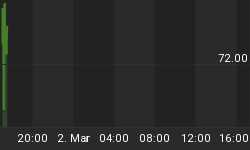Part 1
 The chairman of a Senate oversight committee, Joseph Lieberman, has said he is considering legislation to place limits on large institutional investors in commodities markets, which have posted record prices this year in agricultural products and oil. The chairman of the Senate Homeland Security and Government Affairs Committee said that the legislation would be aimed at speculators and other investors who use commodities as a way to hedge against swings in other investment instruments like stocks and the dollar.
The chairman of a Senate oversight committee, Joseph Lieberman, has said he is considering legislation to place limits on large institutional investors in commodities markets, which have posted record prices this year in agricultural products and oil. The chairman of the Senate Homeland Security and Government Affairs Committee said that the legislation would be aimed at speculators and other investors who use commodities as a way to hedge against swings in other investment instruments like stocks and the dollar.
For some months now we have been warning of such controls and including the potential for such legislation as mentioned here. We have been a lone voice on this, but now the prospect is right up in front of us. Many long-term investors have seen oil and food as a way of retaining or increasing value in their portfolios, but the spreading food crises have shown the ugly side of such market moves. What we want to do in the first part of this two-part piece is to ask: If they are imposed what will be the consequences to the global monetary system and their effect on gold and silver and their prices?
 Legislation Preventing 'Investment' Buying of Oil
Legislation Preventing 'Investment' Buying of Oil
The oil price is around $130 a barrel now having doubled in the last year. At this rate the $4+ a gallon-days will reach us soon. Everyone is being badly affected. It is clear from the market fundamentals that the future demand for oil will inexorably rise, whereas supply looks to be overtaken within the next couple of years. This situation is here to stay. So why should the oil price come down except to give us a better opportunity to buy more at a cheaper price? OPEC has little interest in seeing more supplies come to the market as they see the investment and speculative buying as the real driver of the oil price.
So the pressure is on the politicians of the world to do something to help their own constituents. "Controls" are the first option they have at their fingertips. We do expect this legislation to come in some form, if the oil price does not pull back to the $100 level, by itself and soon.
U.S. versus the Global Scene
For the purposes of this article, let us assume that these laws will be passed in the U.S. They will have to come with some form of buyer 'vetting'. Genuine distributors to the consumer will get oil, non-consumers will get none, or limited amounts? Should this happen, the oil price is then likely to tumble back to the point where the price reflects the present supply and consumer demand...or will it?
After all, this is a global problem and there is nothing to stop a U.S. investor from shipping out their money to a jurisdiction where such restrictive laws are not in place. Then he can go back into oil? Will U.S. investors follow Warren Buffet and actually look overseas for investments in foreign lands? We think the imposition of such laws will trigger what will grow into a financial evolution to real global investing. After all, should investment be governed by national priorities? Politicians will argue, yes, but investors [such as those with production facilities in China] will argue no. It will take more far-reaching controls to give politicians the upper hand?
But U.S. politicians can only control U.S. citizens, so to control non-U.S. investors will take the cooperation of other nation's legislatures, something even the United Nations struggles with? Unless the U.S. imposes Capital Controls on such investors to prevent moving funds to such jurisdictions, the legislation will be ineffective. But if these measures are seen as imperative, Capital Controls will have to come too.
In the second and final part of this article we will look at the relationship between oil and gold [and silver] plus the effects on other markets - currencies, stocks capital markets. This is an important article because we are very close to these controls being imposed, and not just in the U.S. We need to know why and what will happen outside the U.S. too.
Are you and your investments effectively structured to avoid the pernicious effects of Capital and Exchange Controls? Subscribers, contact us for our help concerning these controls: gold-authenticmoney@iafrica.com.
This is just a snippet from the most recent issue from our weekly newsletter:
For the entire report, please visit www.GoldForecaster.com















